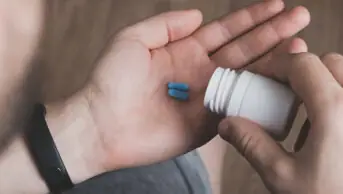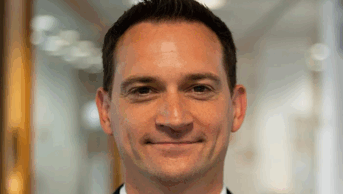
Mclean/Shutterstock.com
After 20 years as a pharmacist, with 15 of those years spent in paediatric intensive care, I was stumped. Where could I take my career next?
I didn’t want to be a manager and it seemed I’d have to leave Manchester for London if I wanted to be a consultant. But in 2015, I was thrown a lifeline — a studentship from the National Institute of Health Research (NIHR) to undertake a master’s degree in clinical research (MClinRes).
Now ‘research’ is a scary word to some pharmacists. We don’t see it as part of our job. It’s an abstract concept for many of us, while we juggle multiple roles and responsibilities. But we all do it at some point — whether we’re undertaking an audit on medication errors or critically appraising a clinical trial, it’s all research.
And in my year out of clinical work, I learned the language of research. I learned that research isn’t a task, or a job, but actually a philosophy.
Pharmacists are trained to be professional sceptics, and during that year I gained skills that built on that scepticism. The work gave me a way of answering some of the questions my scepticism posed.
Without it, I wouldn’t be where I am today. In 2017, the NIHR awarded me a prestigious clinical doctoral research fellowship (CDRF), which funds my PhD, including my salary, tuition fees and all the other research costs that I need to cover to deliver it.
During my PhD, I’m looking at human factors to understand how healthcare practitioners work and how that might cause medication-related problems in hospitalised children. This body of work emerged from my master’s project, which was published in 2019.
In traditional PhDs, you’re often given a title to explore by your supervisor. My NIHR fellowship is guided and supported by my supervisors but it’s ultimately mine. I am accountable for the budget and how it is spent across two organisations with different rules. I am responsible for pulling together the different hospitals involved in the research and learning how to make these things “worth their while”. I’ve got to deliver this £250k project on time and within budget.
I’m learning how to work with children and young people in a situation where they are taking a lead in the research and helping me analyse the data and understand their perceptions of medication-related problems in hospital. I also returned to university in September 2020 to take a formal qualification in human factors — a priority area for the NHS.
Those two little letters before my name will be the reward for these feats and I’ll be in good stead for my future career options.
To get the fellowship, I competed with other healthcare professionals, not just pharmacists. It was a formal competition with a lengthy application form. I spent six months preparing my application. The high level of scrutiny means your project needs to be watertight, so the process gave me a thick skin.
I’ve had many reviews and got a lot of feedback over the years, and this made navigating the ethics process quite straightforward; this was surprising to me, considering that children are involved in my research.
This research is important: there are few clinical trials or observational trials about practice in paediatrics and intensive care. But this lack of evidence isn’t a giant pharma conspiracy or down to ethical challenges: it’s about capacity. There are only a handful of pharmacists working in clinical practice today who have research qualifications or lead their own research themes and projects.
Becoming a pharmacist researcher has given me discipline. I’ve gone from being a fickle ideas person who says yes to everything to a certified ‘finisher–completer’, who is much choosier about the projects I take on.
I’m now the go-to person in my team for piloting and evaluating new service models, supporting early career pharmacists to approach their project work in a structured way and celebrating the work and success of colleagues.
I can do this because my own approach to my work now is more methodical, systematic and robust — and that’s all down to the past five years of research training.
My PhD is due to finish in 2023, just before my 45th birthday, and I’m already looking towards a portfolio career for the future.
I’m building collaborations with industry and other institutions looking at standardisation of practice in paediatrics and beyond. The NIHR also offers funding for clinical lectureships and this could be an opportunity to take forward some of the findings from my PhD.
But, in a profession built around performance indicators, we still need to work out how we can get more pharmacists involved in research. How do clinical academics fit into the modern pharmacy workforce? That’s the biggest challenge facing me and my NIHR pharmacy comrades now.
Adam Sutherland, senior clinical pharmacist, Royal Manchester Children’s Hospital; PhD student, Division of Pharmacy and Optometry, University of Manchester


